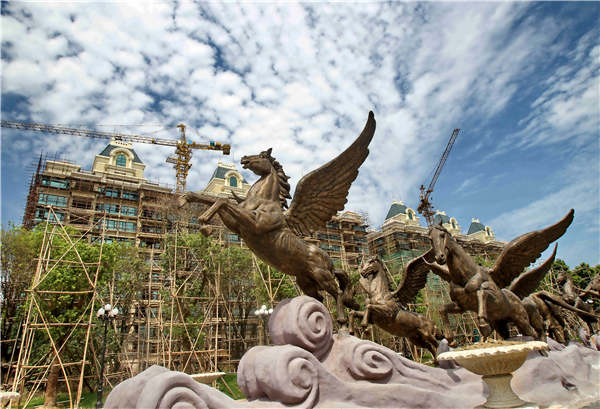 |
|
"Venice", a residential compound in Qidong, Jiangsu province, seen during construction in September 2012. |
Reflecting history
On March 22, Li told a meeting to regulate place names that "over-the-top, West-worshiping, weird and duplicative" names must be eradicated from all locations, including residential compounds and large buildings, and should be replaced with names that better reflect China's culture, history and traditions.
"Some cities have multiple 'Manhattan' or 'Venice' roads. It's not only an inconvenience for travelers, but also erodes the sense of home," Li said, adding that to preserve traditional Chinese culture, the protection of age-old place names must be stepped up and nonregulation names must be removed.
Certain types of names will be targeted, he added, including those that damage sovereignty and national dignity, those at odds with core socialist values and conventional morality, and names that prompt widespread public complaints.
Li made his comments at a meeting to review the State Council's ongoing survey of names, which was launched in 2014 and is expected to be completed in 2018.
The four-year survey is the second national-level investigation into place names since the founding of the People's Republic of China in 1949, and follows a study conducted from 1979 to 1986.
According to a 2014 survey conducted by the Ministry of Civil Affairs, the last 30 years have seen changes to the names of more than 60,000 townships across the country. Statistics provided by the Ministry of Civil Affairs in 2013 show that 40 percent of the names of Beijing's hutong, the network of alleys that once crisscrossed the city, were changed between 1980 and 2003.
The meeting triggered a nationwide discussion about whether the government should impose a ban on naming places after famous locations overseas, and about the significance of protecting names with historical meanings.
The most heated debate centered around the practice of naming residential compounds after venues in developed countries, which has been widely adopted by real estate developers for commercial purposes.